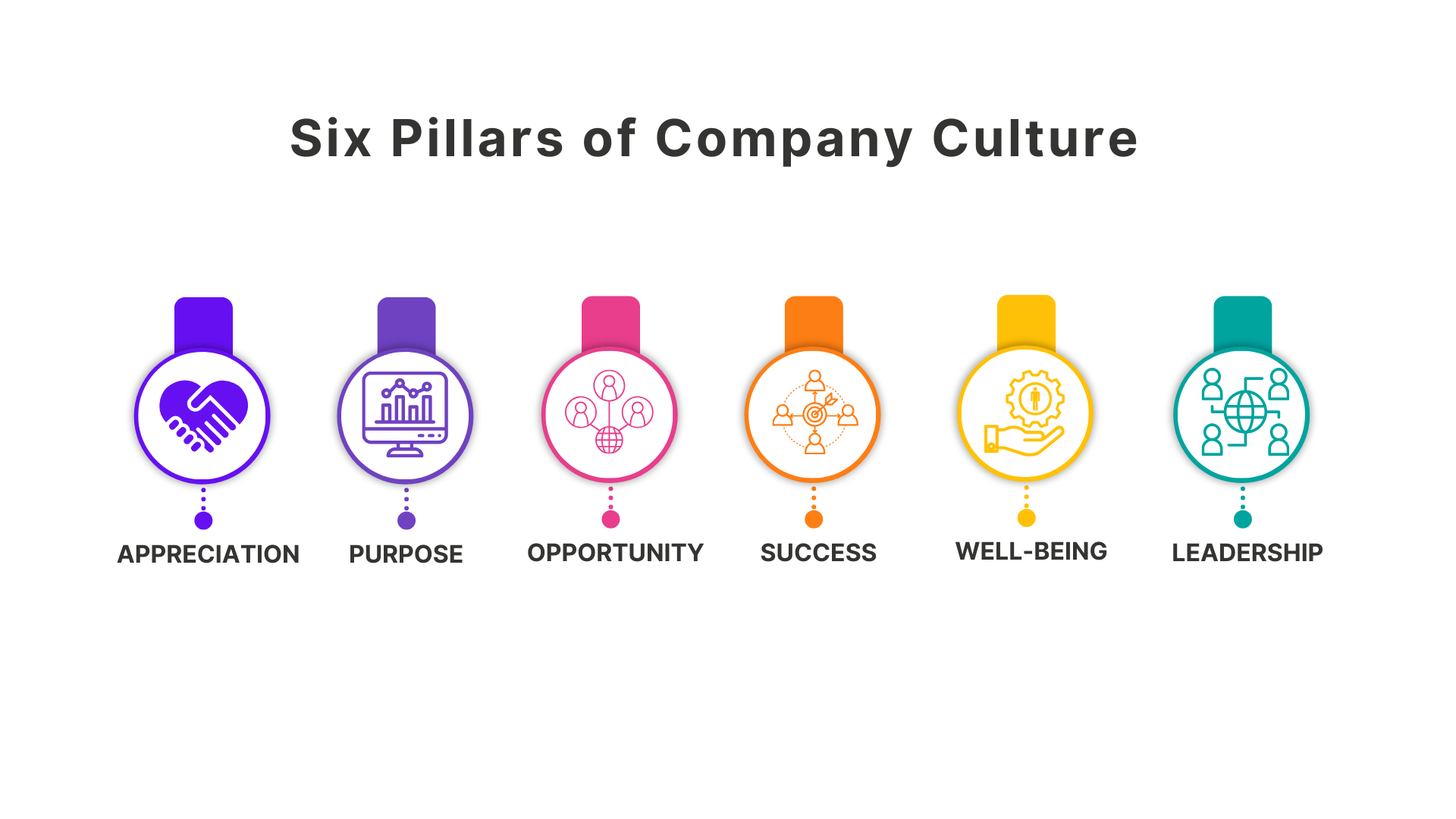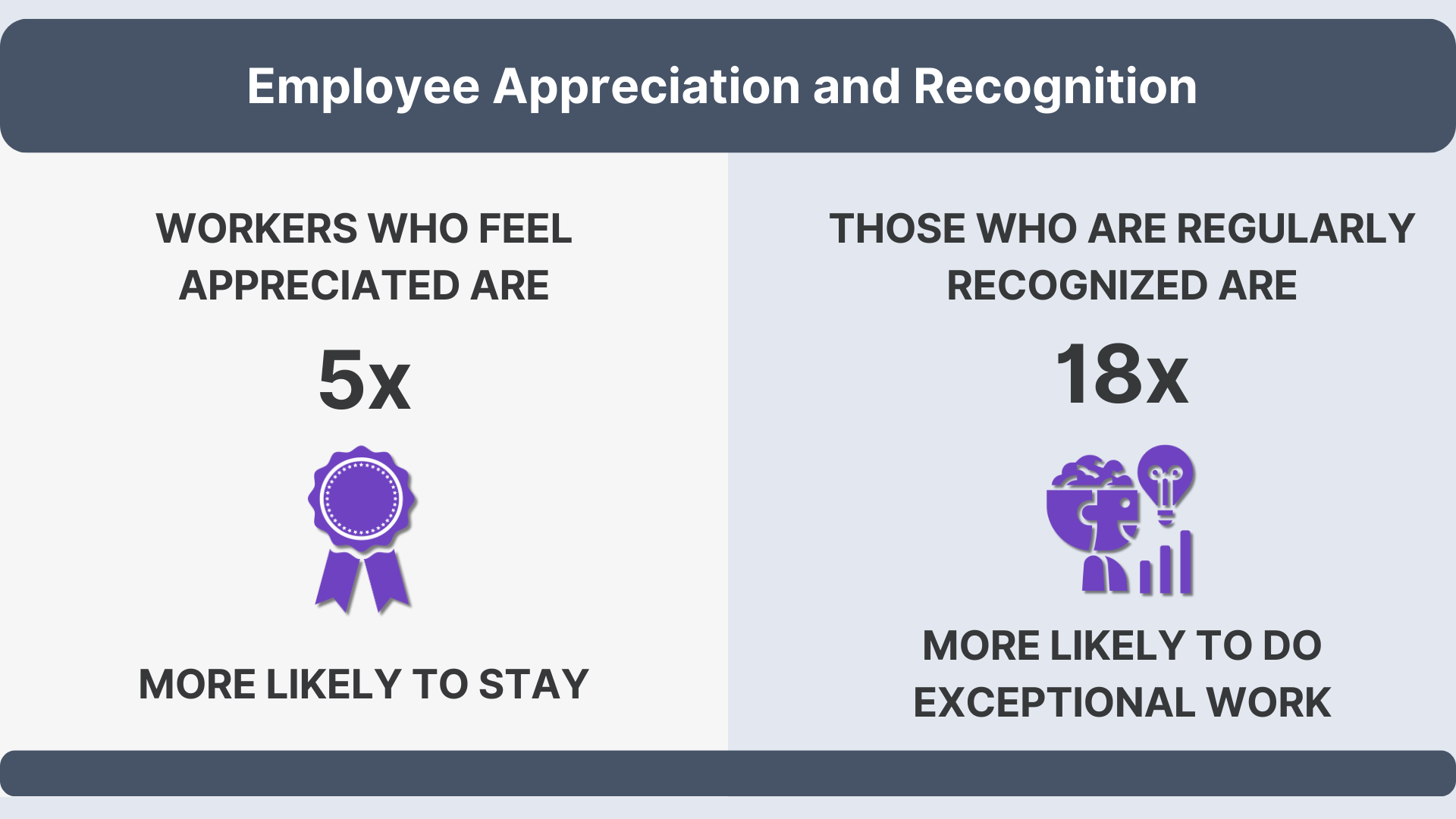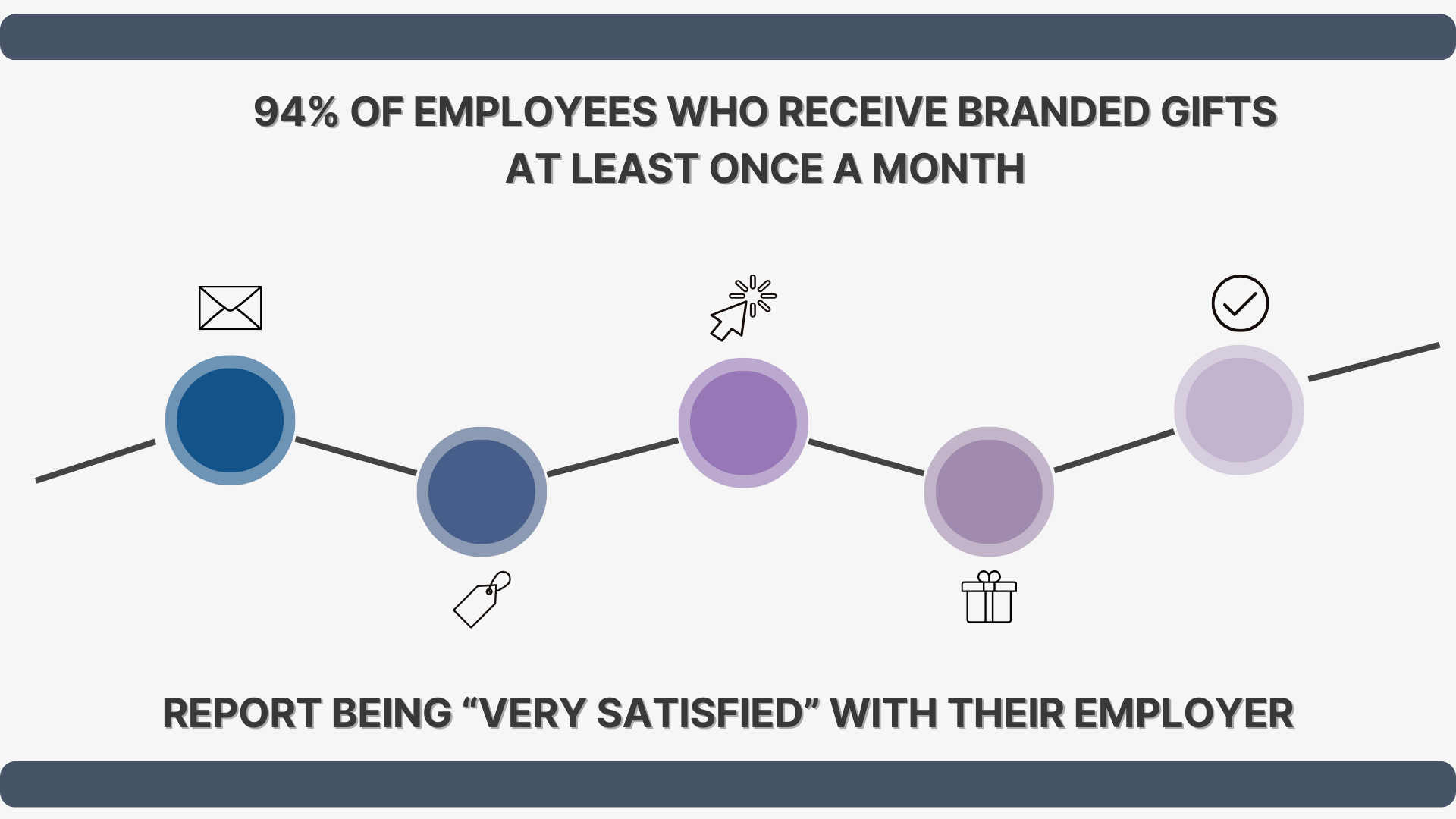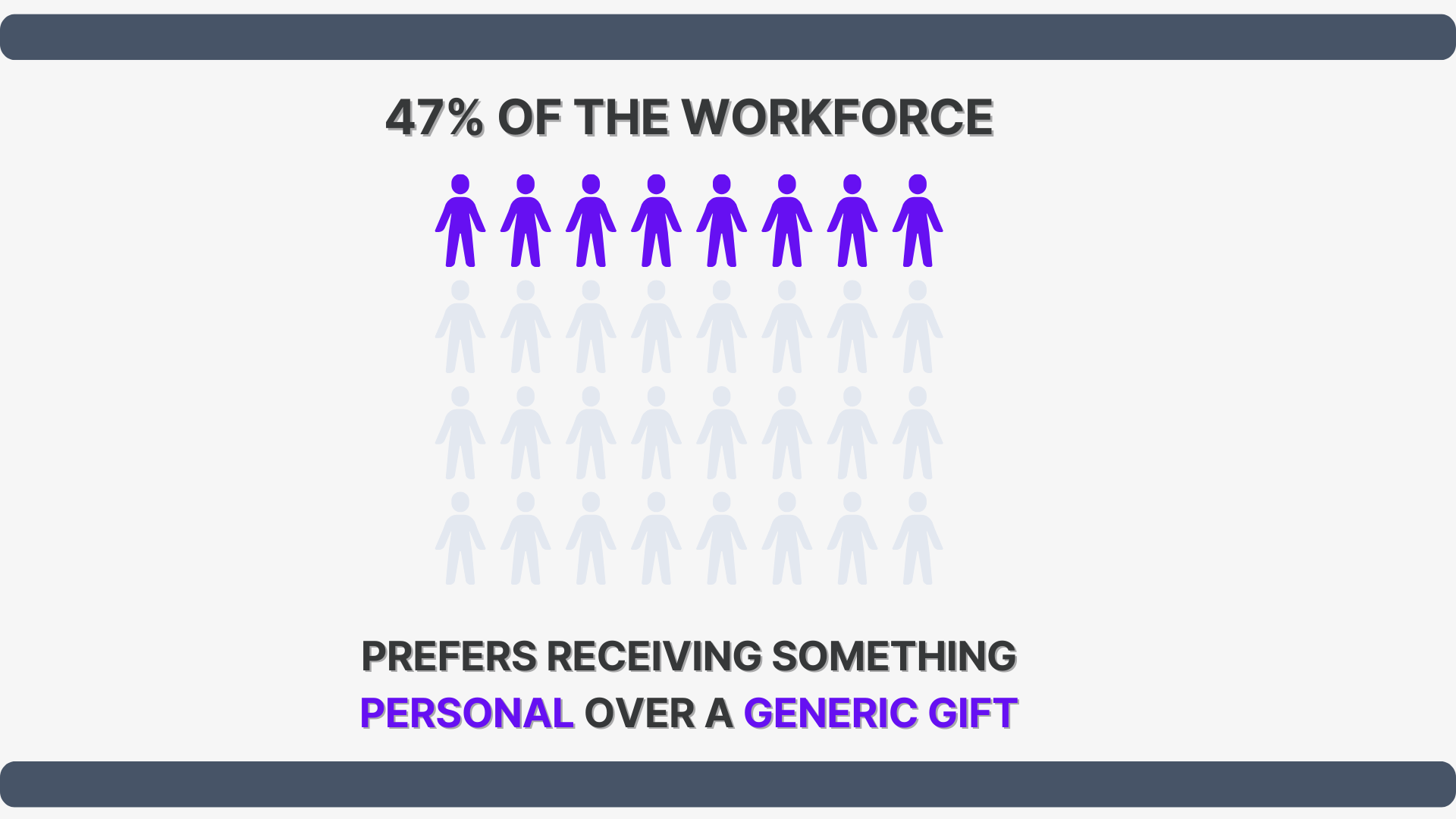4. Branded Office Supplies
For in-office employees, branded office supplies such as notebooks, pens, or desk organizers can be an excellent way of showing appreciation. These practical gifts are easy to produce in bulk, improve the work setting, and reinforce a sense of connection through consistent brand presence.
5. Work-from-Home Essentials
For remote workers, gifts like branded mousepads, webcam covers, or ergonomic phone stands can make their home offices more functional. These items combine practicality and personalization while keeping costs low.
6. Food and Snack Gifts
Whether implementing regular office snack services, gifting them individually to high performers, or sharing them during team events, food gifts are a universally appreciated gesture.
7. Books
Books (physical, digital, or audiobooks) can be meaningful employee appreciation gifts when they align with an employee’s interests or support their growth. For physical copies, including a handwritten note inside adds a personal touch that makes the gesture even more memorable.
8. Technology Gifts
Budget-friendly tech items, such as portable chargers, Bluetooth speakers, or wireless earbuds, are modern accessories that show appreciation while offering functionality.
9. Event Tickets
Similarly to an experience gift card, event tickets to concerts, sports events, or theater shows are a fun way to reward the workforce. Local and affordable gift options ensure employees enjoy the experience without additional travel expenses.
10. Personalized Gift Baskets
Gift baskets featuring small, handpicked items, such as favorite snacks, books, or hobby-related products, provide an authentic way to recognize employees beyond their job titles.
11. Work-from-Anywhere Day
Providing flexible work benefits, like the opportunity to work remotely, whether in a coffee shop, home, or another inspiring space, demonstrates trust and supports work-life balance. Although it’s not a physical gift, this kind of flexibility is a powerful gesture of appreciation that many employees may value more than tangible rewards.
12. Employee Well-being Benefits
Small but impactful wellness perks can be a great way to show appreciation. Examples include a mental health app subscription, gym memberships, or extra paid sick days. These benefits show that the company values employee well-being while staying within budget.
13. Peer Recognition Fund
Peer-to-peer recognition is paramount. Giving workers a small budget to recognize their colleagues empowers them to express appreciation while deepening trust and team connection.
14. Monthly Employee Appreciation Awards
Recognizing workers with a monthly award, such as a small trophy, certificate, or added perks like a free lunch or an early leave, fosters a culture of continuous appreciation while remaining cost-efficient.
15.Fun Team Experiences
Affordable team activities like virtual trivia games or escape rooms offer a creative approach to recognition. These experiences help strengthen team relationships while creating lasting, positive memories.











